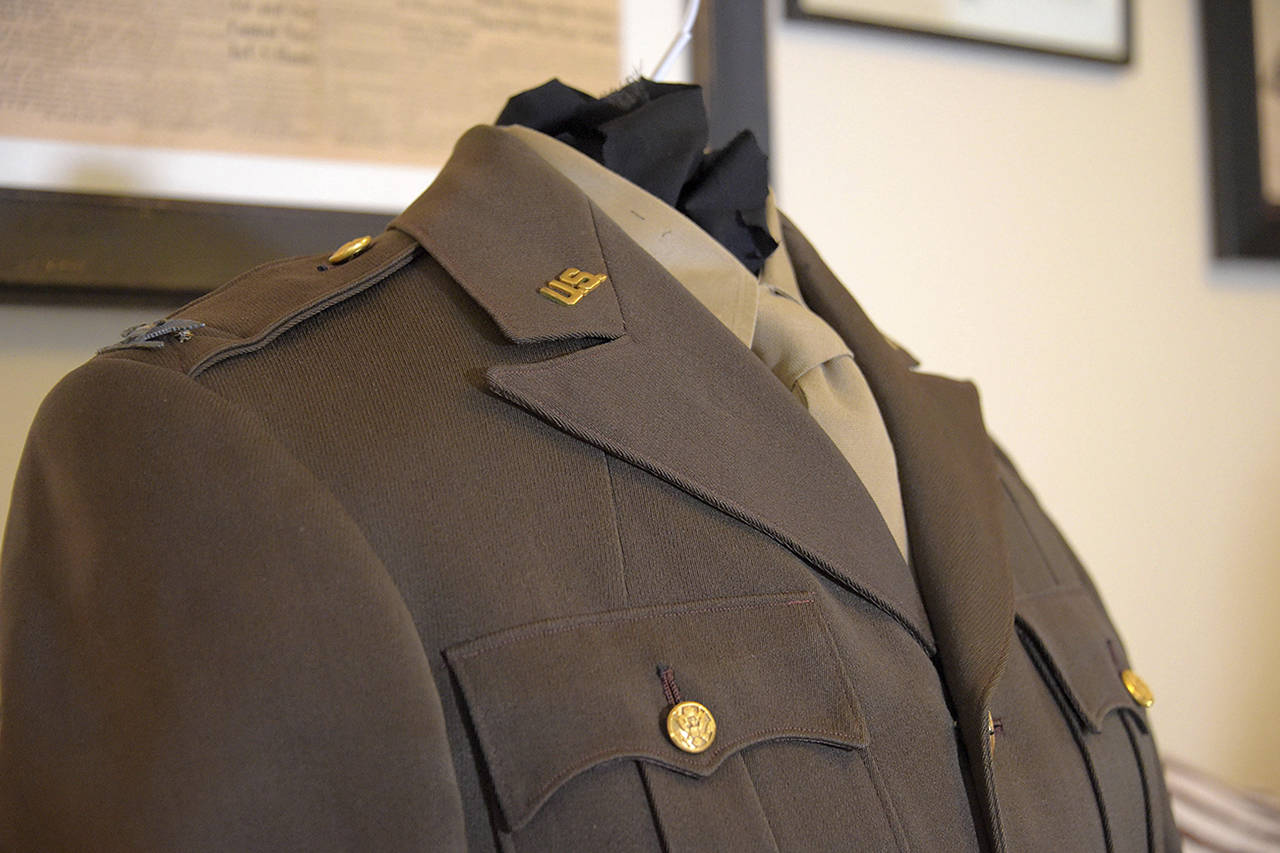By Talia Richman
The Baltimore Sun
BALTIMORE — Bruce Campbell was perusing the racks of a thrift store in Spokane when he found the olive green jacket.
As a military historian and former naval officer, Campbell recognized it as part of a World War II-era U.S. Army uniform. He was surprised to find it in such good shape. Many old uniforms that find their way to such shops, he said, are moth-eaten or torn.
He was even more surprised to see the jacket’s label was still legible: It was made by Baltimore manufacturer A. Jacobs &Sons on Howard Street, dated September 1947.
And there was a name: COL. A.L. SHREVE.
Three days of research led Campbell to determine the uniform must have belonged to Col. Arthur Lee Shreve Jr., a Baltimore man who served in both world wars and survived a Japanese prisoner-of-war camp.
Hungry for more information, Campbell searched online and found the website of Heather Shreve, a Carroll County woman who for the past three years has researched and documented the life of her late grandfather, publishing his wartime diaries and giving speeches about his heroism.
On July 14 — two days before what would have been the colonel’s 120th birthday — Campbell contacted Shreve and offered to mail the uniform to her home in Hampstead, about 2,500 miles away.
“She has put so much effort into researching him and making sure his story got out,” said Campbell, 47, who was a lieutenant commander in the Navy.
“This uniform had to go home,” he said. “It’s where it belonged.”
Shreve, 53, an author who has self-published one book on her grandfather’s exploits, “The Colonel’s Way,” and is working on another, said the surprise contact with Campbell — and his gift — touched her deeply.
“I was just stunned,” she said. “Seventy years it’s been floating out there. To me, it’s just wonderful to have an actual piece of clothing that he wore.”
Colonel’s uniform returns to Maryland
Shreve has no idea know how the uniform jacket made its way to Value Village in Spokane. Such items often wind up in shops through donations, but Shreve does not know who in her family would have passed it along.
Before sending the jacket back, Campbell tried to complete the look with authentic artifacts from his personal collection of military uniforms. He put a 1945 officer’s cotton dress shirt inside the jacket, along with a tie worn by an officer who — like Shreve — had served in the Philippines.
He gave it a steam pressing in accordance with 1947 regulations, and attached sterling silver insignia on the shoulder pads.
“I hope that these can help you get a better feel for what it would have looked like in person,” he wrote in an attached letter.
Campbell also told Shreve he would help her locate the many medals and ribbons her grandfather’s uniform would have sported.
In return, Shreve sent Campbell a copy of her first book about her grandfather, which includes diary entries he made in secret from 1941 through 1945 when he was a prisoner of the Japanese. The entries, which depict horrendous conditions, inhumane treatment and heavy casualties, were later used as evidence by the Army’s war crimes office.
The diaries were passed down to Shreve by family members.
Arthur Shreve was born in Baltimore in 1897 and dropped out of high school after his father’s death. He later joined the Maryland National Guard and began a 44-year career in the military. He was a pilot during World War I, then served in the Philippines during World War II. While there, he was taken prisoner.
He served as chief of the Maryland Military District at Fort Meade during the Korean War. He died in 1969.
Shreve’s grandfather died when she was 6. Though she has happy memories of sitting on his knee and playing games, Shreve could never ask about what it was like for him to fight for his country or to live as a prisoner, not knowing if he would ever see his wife or two sons again.
She said her journey delving into her grandfather’s past has been “life altering.” It took her career in a new direction after she lost a business during the recession. She said his story has also given her strength as a single mother.
“He saved me,” she said. “Just hearing his story makes you stronger, too.”
Campbell said he’s glad he stumbled upon the uniform and was able to unite it with the colonel’s granddaughter.
And he’s glad to know the story behind it, too.
“This feels like winning the lottery to me,” he said.



